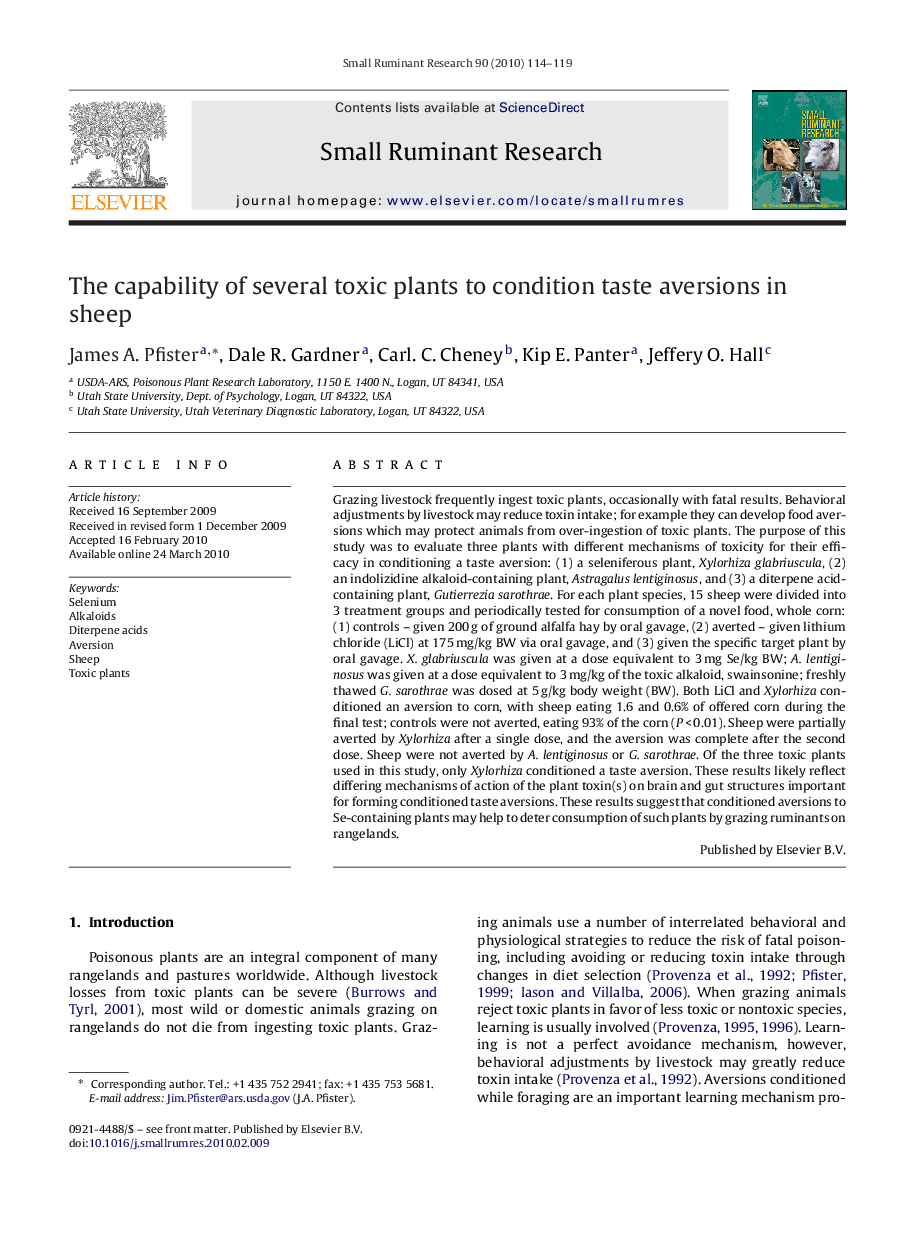| کد مقاله | کد نشریه | سال انتشار | مقاله انگلیسی | نسخه تمام متن |
|---|---|---|---|---|
| 2457503 | 1554402 | 2010 | 6 صفحه PDF | دانلود رایگان |

Grazing livestock frequently ingest toxic plants, occasionally with fatal results. Behavioral adjustments by livestock may reduce toxin intake; for example they can develop food aversions which may protect animals from over-ingestion of toxic plants. The purpose of this study was to evaluate three plants with different mechanisms of toxicity for their efficacy in conditioning a taste aversion: (1) a seleniferous plant, Xylorhiza glabriuscula, (2) an indolizidine alkaloid-containing plant, Astragalus lentiginosus, and (3) a diterpene acid-containing plant, Gutierrezia sarothrae. For each plant species, 15 sheep were divided into 3 treatment groups and periodically tested for consumption of a novel food, whole corn: (1) controls – given 200 g of ground alfalfa hay by oral gavage, (2) averted – given lithium chloride (LiCl) at 175 mg/kg BW via oral gavage, and (3) given the specific target plant by oral gavage. X. glabriuscula was given at a dose equivalent to 3 mg Se/kg BW; A. lentiginosus was given at a dose equivalent to 3 mg/kg of the toxic alkaloid, swainsonine; freshly thawed G. sarothrae was dosed at 5 g/kg body weight (BW). Both LiCl and Xylorhiza conditioned an aversion to corn, with sheep eating 1.6 and 0.6% of offered corn during the final test; controls were not averted, eating 93% of the corn (P < 0.01). Sheep were partially averted by Xylorhiza after a single dose, and the aversion was complete after the second dose. Sheep were not averted by A. lentiginosus or G. sarothrae. Of the three toxic plants used in this study, only Xylorhiza conditioned a taste aversion. These results likely reflect differing mechanisms of action of the plant toxin(s) on brain and gut structures important for forming conditioned taste aversions. These results suggest that conditioned aversions to Se-containing plants may help to deter consumption of such plants by grazing ruminants on rangelands.
Journal: Small Ruminant Research - Volume 90, Issues 1–3, May 2010, Pages 114–119